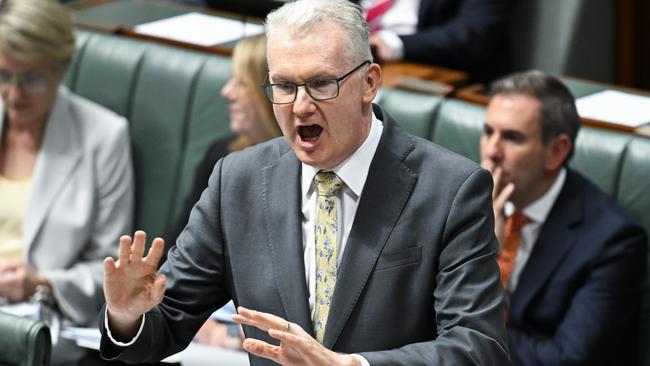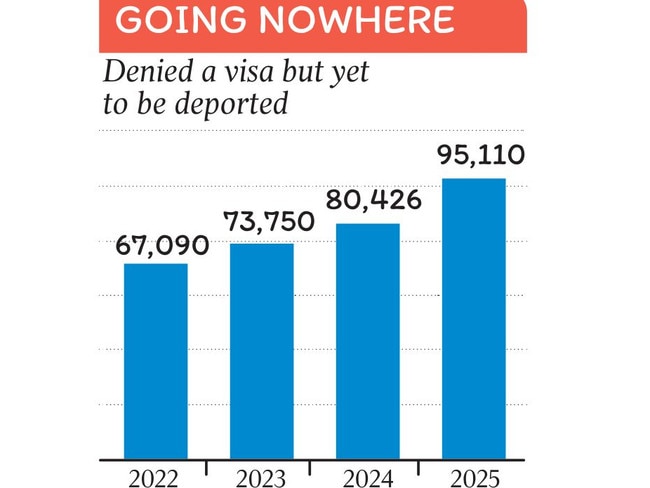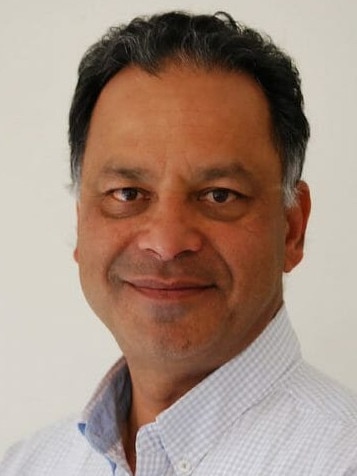Labor warned of US-style undocumented migrant crisis
More than 51,000 asylum-seekers who have had their visa pleas rejected are yet to be deported from Australia, with Labor facing warnings the nation could descend into a US-style undocumented migration crisis.

More than 51,000 asylum-seekers who have had their visa pleas rejected in court are yet to be deported from Australia, with Labor facing warnings the nation could descend into a US-style undocumented migration crisis.
The number of people who have lost out on getting a protection visa from the government but are yet to be deported has climbed to 95,110, the Department of Home Affairs revealed, with another 28,083 people waiting for a determination on their humanitarian status.
With 43,493 people challenging the rejection of their visa application in the Administrative Review Tribunal, the number of migrants who have gone through the legal system and now have no right to remain in Australia is estimated to have reached 51,617.
This is excluding a small group contesting the decision in the Federal Court.

The crisis has been fuelled in part by a wave of vexatious asylum claims, including from international students who have had their visas rejected, Pacific Islanders looking for a migration pathway and visitors seizing the opportunity to extend their stay in Australia.
As Home Affairs and Immigration Minister Tony Burke begins his second term in the challenging portfolio after Labor’s May 3 election win, he will be faced with the herculean task of tackling the rise in protection claims and undocumented migrants.
“We inherited a broken immigration system, where tens of thousands of people were exploiting the system to remain in the country legally,” a spokeswoman for Mr Burke said.
“We’ve made great strides to speed up processing times, so claims are being resolved much faster.
“Those changes mean that people who used to be waiting in the line no longer have a legal right to be here, and we expect them to leave.”
Amid political pressure to drive down net migration following a post-pandemic boom, Labor has taken steps to reduce the number of international students and tackle exploitation in other parts of the migration system to slash overseas arrivals.
Former Immigration Department deputy secretary Abul Rizvi said some temporary residents had applied for asylum because they had no other option to remain in Australia, despite not having a genuine claim for protection. He said deporting this group was difficult, with fewer than five failed asylum-seekers deported involuntarily last month and fewer than 10 leaving of their own will.
“Let’s not mince words, the cost of this will be huge, and the solutions are controversial,” Dr Rizvi said.
“But we don’t want to get into the situation that the United States and Europe (are) in on this where the costs are 10 times larger, and many times more controversial, as (US President) Donald Trump is finding out.”
Mr Trump was propelled back to the White House in November promising to implement a mass deportation of illegal migrants, recently offering non-citizens $US1000 ($1550) and a plane ticket in exchange for leaving the country. His officials have also floated suspending a legal principle, known as habeas corpus, that protects against arbitrary detention.

Dr Rizvi said the crisis could be addressed by speeding up processing at the ART, taking steps to make the asylum visa less attractive by swiftly removing applicants who have been rejected, and addressing the reasons non-citizens lodge unmeritorious asylum claims. He said providing a pathway for Pacific Islanders, who account for about 20 per cent of protection claims, to stay permanently would discourage migrant workers from the region from applying for asylum.
Dr Rizvi said Labor’s efforts to speed up processing of protection visa applications and discourage unmeritorious asylum claims had only resulted in more people becoming undocumented more quickly. Former immigration minister Andrew Giles in October 2023 announced an $160m investment to establish “real-time priority processing” of applications and to grow the numbers of the appeals tribunal.
“We’re slowly heading towards, in the next two to three years, a real crunch on this,” Dr Rizvi said.




To join the conversation, please log in. Don't have an account? Register
Join the conversation, you are commenting as Logout